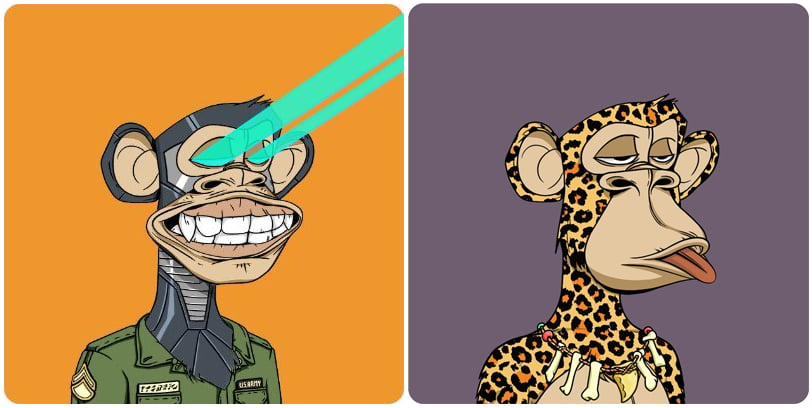An investigative reporter has revealed the identities of the two core founders of Bored Ape Yacht Club, spurring a furious internet debate about pseudonymity in business and a Web3 world.
In a report published last week by Buzzfeed News, Greg Solano and Wylie Aronow, who operate online under the names Gordon Goner and Gargamel, respectively, were exposed as the brains behind the trendy collection of NFT avatars now worth billions. (For more context on the collection, read Artnet News’s Bored Ape breakdown from last year.)
The reporter, Buzzfeed’s Katie Notopoulos, discovered the duo’s identities after tracking down public records for Yuga Labs, the company that owns and operates the collection. Yuga was incorporated in Delaware at an address associated with Solano, while other documents connected him to Aronow.
The two developers grew up together in Florida and are now in their mid 30s, according to Notopoulos. The identities of the company’s other cofounders, a pair of engineers who go by Emperor Tomato Ketchup and No Sass, remain unknown.
Yuga Labs CEO Nicole Muniz confirmed the news outlet’s report, and shortly thereafter, both Solano and Aronow tweeted pictures of their “Web2” selves. “Got doxxed against my will,” wrote Solano in his post, using the slang word for the publishing of a person’s private information online. “Oh well.”
Others in the crypto community did not project the same level of nonchalance, however. On Twitter and other social media platforms, users accused Buzzfeed of violating journalistic ethics and endangering the subjects of the article. Some have even threatened to publish Notopoulos’s own private information in retaliation.
“What @BuzzFeed did today to the #BAYC founders was not only unprofessional—it was downright dangerous,” wrote Adam Hollander, a video game founder and Bored Ape owner. He added that the news outlet “should apologize and pay for [Solano and Aronow] to obtain personal security.”
At the heart of the row is the question of whether or not the owners of highly profitable businesses have a responsibility to make their identities known, as is the legal obligation of executives atop publicly traded companies (Yuga Labs remains a private entity). To boil the debate down: some argue that such transparency is vital to maintaining ethical business practices, while many in the crypto space believe it would dismantle the democratic foundation of Web3—a dream predicated on the principle of anonymity.
What neither party can deny is that there is suddenly much at stake. Since Solano, Aronow, and the others founded Bored Apes last April, the project has exploded in popularity—and price.
Along with CryptoPunks, Art Blocks, and other avatar collections, Bored Apes have come to symbolize the explosion of the NFT market. Whereas each Ape was once valued for about $300 a pop, now the base price tag to acquire just one is over $250,000. They’ve also proven particularly popular among celebrities: figures such as Eminem, Travis Barker, and Gwyneth Paltrow all own Apes (as evidenced by their Twitter profiles), as do Paris Hilton and Jimmy Fallon, who gushed about their own avatars in a recent taping of The Tonight Show.
Investors are another group that is increasingly interested in Apes. Last week, the Financial Times reported that Yuga Labs is in talks with the venture capital firm Andreessen Horowitz around a financing deal that would value the company between $4 billion and $5 billion. Incidentally, Marc Andreessen, one of the firm’s two founders, is a major art collector, owning pieces by Jasper Johns, Agnes Martin, and Robert Rauschenberg—perhaps a sign of crypto’s increasing overlap with more traditional asset classes.









